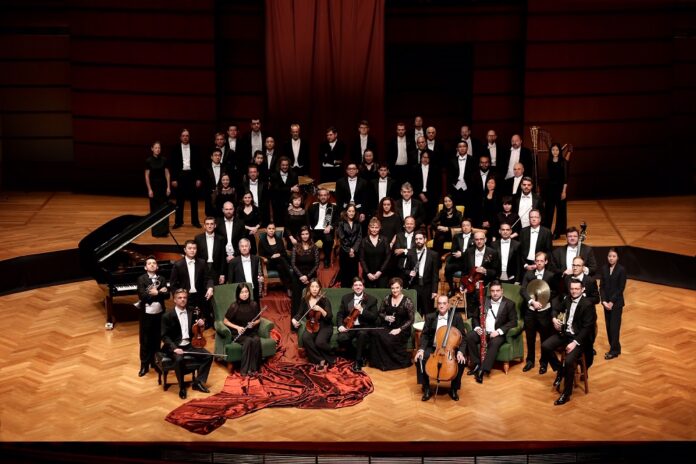It will be a long time before the Malaysian Philharmonic Orchestra resume ‘live’ shows as it will only resume operations next January. — Picture courtesy of the Malaysian Philharmonic Orchestra
KUALA LUMPUR, Oct 18 — For those wondering if the Malaysian Philharmonic Orchestra (MPO) will remain operational, the short answer is yes.
Like many other businesses and organisations, the MPO has been severely affected over the year-and-half of the Covid-19 pandemic.
According to media officer Muhammad Shahrir Aizat Muhammad Shuhaili, the MPO is restrategising its business plans to adapt.
“Once we are ready, we will share with all media on the new direction,” he told Malay Mail when contacted.
Shahrir was responding to a report speculating about the MPO’s possible closure.
In July, lifestyle publication Options reported that the MPO was downsizing its operations and suggested that the outfit may even close permanently.
“Referring to the article, it was never mentioned that the operation will be shut down, just that we are re-evaluating our business model,” Shahrir said.
A source familiar with the matter told Malay Mail that while the MPO will not cease operations, the downsizing could hurt the quality of the orchestra.
“The downsizing will affect 49 musicians, leaving only 29 (section principals) behind, out of which only four or five are Malaysians.
“It will be a long time before they resume ‘live’ shows as they will only resume operations next January.
“That will also be the time they will audition new musicians to join them and this will take some time,” the source said.
In an orchestra, each section has subdivisions with a principal — essentially a supervisor that leads the specific grouping of instruments.
The principal not only has to play flawlessly in a group setting, but would typically handle any solo pieces from the section.
Elaborating on the downsizing, the source said that this would be the right time to carry out this exercise since the effects of the pandemic are global.
The source added that talk of downsizing has existed since early 2008, when several musicians left the orchestra due to differences with the music director.
Later in 2010, 11 musicians were dismissed without any reason given.
“They were good musicians, including the concertmaster.
“They didn’t get their contracts renewed even though they had been there since 1998,” said the source, indicating that these were foreigners.
The source said an impending 10 per cent salary cut could also be why many foreign musicians have decided to leave.
“Although the situation of a philharmonic orchestra losing popularity globally is also part of the reason why musicians are no longer interested in playing for the MPO, the situation in Malaysia is an isolated one.
“In Malaysia, the MPO will need to do a balancing act with fewer musicians and yet maintain the standards of an orchestra when there are so few musicians left.
“It remains unknown how they are going to source for musicians next,” said the source who expressed hope that the MPO would continue inspiring future generations of musicians.
However, the person said it would be difficult to maintain the standards if the MPO could not retain or attract foreign performers as few local talents were at the level necessary to perform with what was considered one of Asia’s leading orchestras.
As for foreign performers, the source said the restrictions imposed for joining the MPO could be a deterrent to some.
Among others is the prohibition of teaching music on the side, even if they are not scheduled for a concert.
“Some of the musicians were part-time music teachers before they joined the orchestra, but in order to be hired, they had to quit their teaching jobs.
“They cannot be caught doing it on the side, this could risk their position in the orchestra,” the source said.
The musicians are also not allowed to audition for other orchestras, even when there are no shows that require them to be on standby.
“Universally, this can be done — a musician is free to audition elsewhere — as long as they are not occupied.
“However, there are terms set for the musicians here, whereby if they auditioned with another orchestra, they could be deprived from their salary on the days that they are not in-town.
“This is one of the reasons why some are reluctant to join the MPO,” said the source.
On April 17, the MPO resumed “live” shows with limited seating.
It was reported that it ran through three “live” performances from its 2021 season and closed its doors again on May 7 due to the movement control order (MCO 3.0).
On May 3, Galeri Petronas, which was also primarily funded by Petronas, ceased operations as a public gallery after 28 years.
This was decided following a realignment of its operations model to adapt to the changes brought about by the Covid-19 pandemic.


